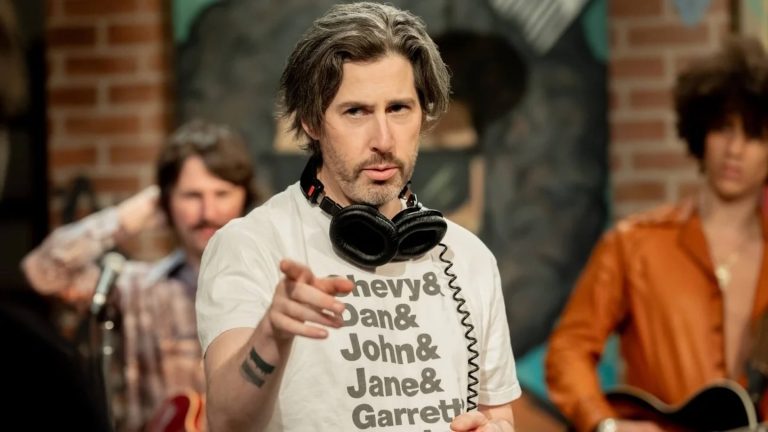What Criteria Does Hollywood Use to Pass on a Screenplay?

Does every screenplay have a place in Hollywood? And if not, what criteria do studios, production companies, management companies, and agencies use to decide which scripts make it, and which don't?
There's a common misconception amongst screenwriters that struggle with rejection — that success in seeing their scripts optioned, purchased, and produced is merely a matter of the script getting into the right hands.
This notion centers on the belief that personal opinion of the initial script reader — including their own likes, dislikes, and cinematic turn-ons and turn-offs — are the sole reason why the screenplay was passed on.
For example, the belief is that maybe the screenwriter didn't like the genre the script was in. Maybe they hated zombie stories and reading one, no matter how "good" it was, annoyed them to the point that they passed on the script. Or maybe the script reader was an action guy or a thriller girl, and the melodrama they were reading was boring them to death, so they passed on the script.
This negative perception is compounded by the many examples within Hollywood of eventual successful movies being passed on by other studios. Iconic movies like Star Wars, Back to the Future, and E.T. (as well as a majority of iconic classics that broke box office records) were all passed on by all of the major studios. Yet the scripts were somehow discovered by the "right" people that were wise enough to gamble on them.
Often-rejected screenwriters seem to use these stories for the hope that one day their scripts will fall into the hands of that right person. That it's not the script that is to blame — nor the writer's writing — but the people reading the scripts.
This is a very negative pattern of belief for a screenwriter.
While, yes, getting your screenplay to the right person at the right time in the right set of circumstances is a huge part of the Hollywood machine, that doesn't mean that ALL screenplays have a place somewhere in Hollywood. Quite the contrary.
Ask any script reader, development executive, producer, manager, or agent, and they'll tell you that a majority of the screenplays that they read are either outright terrible or just aren't ready. And when many screenwriters read that statement, they'll point to the belief that "terrible" is entirely subjective.
Well, it's not. At least most of the time.
To try and clear this often-debated subject up, here we will detail the big-picture levels of Hollywood criteria — spoken or unspoken — that forces industry insiders to pass on a screenplay.
1. It's Not Written Well
Let's tackle the most debated criteria first.
"'It's not written well??' Isn't that subjective?"
There's no escaping a subjective viewpoint. When you give a script to someone with the intention of considering it for option, acquisition, or as a sample of writing ability for possible paid writing assignments, there's always going to be some form of subjective opinion.
One proven producer could hate it, and another proven producer could love it.
But that in no way, shape, or form implies that all screenplays have a place in the option, acquisition, or consideration pile of any major studio, production company, management company, or agency.
A majority of screenplays just aren't written that well.
Some have a complete lack of format awareness, which drastically affects the communication of a cinematic story or lack thereof.
Read ScreenCraft's Does Correct Screenplay Format REALLY Matter?
Some have a complete lack of structure awareness, which usually entails cobbled sequences of scenes that have no rhyme or reason or just don't make sense.
Learn the best way to structure your screenplay with this free guide.
Some have a complete lack of characterization, which means that the characters within the story aren't consistent in their actions, beliefs, and dialogue.
Some have a complete lack of dialogue merit, which often points to the use of on-the-nose dialogue and terrible exposition lines.
Read ScreenCraft's How to Avoid Writing On-The-Nose Dialogue and Three Easy Ways to Write GOOD Exposition in Your Scripts!
Those are just a few of the ways that a script may not be written that well. And they are very objective.
95% or more of the scripts that come through the system just aren't written well. It's not that the script reader didn't understand them, didn't like the genre or writing style. The writer clearly submitted either a lackluster effort or a draft that wasn't ready to be submitted.
The best thing screenwriters can do is embrace rejection and try to learn from it.
If you truly believe that you've done all that you can to write a great script, then maybe...
2. It's Not for the Company
Subjective issues certainly come into play within the read of the script, but most professional readers are tasked with pushing aside most of their subjective viewpoints. Screenwriters may be surprised to hear that major studio and production company readers are required to dial down their subjective reaction and instead focus on the needs of the company.
A compelling drama that the script reader loves may not be right for the production companies current production agenda. An action-packed rollercoaster ride of a script may not be the reader's cup of tea, but if the company is looking for a box office hit and the script has many of the ingredients of an entertaining romp, that reader is required to think of the company first.
Maybe there are a handful of scripts in the market that are tackling the same concept? Maybe those other scripts are better? Or maybe some of those scripts are further down the pipe?
Maybe the script market has been saturated with similar concepts, many of which are already being produced?
Maybe the required budget of your screenplay is astronomical compared to the current budgetary constraints of the company or the studio they are partnered with?
Or maybe the company doesn't produce that type of concept or genre for any hundreds of other reasons?
Just because a script is written very well doesn't mean that it's going to get purchased. Film and television are business industries. Cinema is not just art for art's sake. Never has been and never will be. The first and clear intention is to make the investments back and turn a profit. And that fact causes companies to turn away otherwise well-written scripts.
If you, the screenwriter, scoff at that and believe that cinema should be a pure art form, then go direct the movie yourself or partner with a like-minded artist that can. But if you're trying to sell a script, you need to remember that it's a business.
The thing that you can control is who you send the script to. If you're sending your melodrama to Michael Bay's production company because you found an email address or know someone within the company that you can namedrop, you're not doing yourself (or them) any favors.
Market your script to the right companies that are making movies similar to your cinematic stories. Utilize IMdBPro to help create a solid marketing plan.
Read ScreenCraft's 7 Marketing Strategy Hacks for Screenwriters!
Either way, understand that sometimes it's not your script. Sometimes it's just not the right place. Sometimes...
3. It's Bad Timing
When a particular concept or genre explodes, many screenwriters look to emulate that success by writing their own version or variation. This is called trend chasing.
The problem is that Hollywood is already doing this. And because they have the power and money to get things moving faster, by the time you've written your trend chaser and managed to market it somehow, Hollywood is months or years ahead of you. They already have scripts written and packages all wrapped up nicely with a director, stars, and financing. They are more than likely to have projects produced by the time you get to the final draft of your version.
So when they read your script, they see that it's just bad timing. No matter how good the script may or may not be.
And sometimes you have no control over that lousy timing.
Sometimes you're not chasing a trend. Sometimes fate is cruel, and X number of other writers wrote scripts similar to yours and managed to get them into the hands of industry insiders before you could.
Or maybe...
4. It's Because Your Script Didn't WOO Them
Maybe your script was written well. Maybe you marketed it to the right company. Maybe it's perfect timing. But maybe your screenplay didn't make the lasting impression that it needed to make for them to take it to the next level.
If 95% (give or take) of the scripts in the market are terrible, or just not ready, then 4% (give or take) are the ones that are written well but don't blow the socks off of the reader or their bosses.
That's what it takes to get a script purchased. It has to blow them away.
Why? Because it takes a lot of passion to get a film made. And if they aren't passionate about your script, they're not going to be able to convince directors, stars, investors, and studios to make it.
This is where subjectivity does come into play. This is why Star Wars, Back to the Future, and E.T. had to wait until the right producer and studio executive were attached.
But that doesn't mean every screenplay has a chance for this to happen. If you are blind to the lack of objective quality of your own work, you can't fall into the trap of blaming others or live with your heads in the clouds thinking that your work is the next iconic hit that others just aren't seeing.
When you're writing the script, you need to make sure that you're firing on all cylinders.
If you're writing a comedy, make it the funniest possible comedy.
If you're writing an action flick, make it the most action-packed script imaginable.
If you're writing a horror flick, make it the scariest piece you possibly can.
And remember that you have to do all of that in an original way. Show us different takes, different angles, and different methods so that we are truly wooed.
What's the secret to doing that?
There's no easy answer or formula. You can't capture lightning in a bottle. Just focus on wooing yourself and then get that script out to as many industry insiders as possible.
But wait, there's another extended branch of Hollywood that you should be aware when it comes to the judgment of your script...
5. Contests, Competitions, and Fellowships, Oh My!
All right, screenwriters. Here's some truth. The most subjective reads you'll receive are from contest, competition, and fellowship readers and judges.
While the major contests, competitions, and fellowships do impose specific objective criteria on the readers and judges, as far as how they are supposed to judge a script, this is where a subjective viewpoint really comes into play in regards to if a screenplay is passed on or not.
There are no company directives to worry about. The reader doesn't need to worry about timing or any other outside factors.
If the reader loves the script, it will get the coveted RECOMMEND or at least a CONSIDER. If they don't respond to it, they'll PASS. And yes, once a script moves up to the next level of judging, those judges will apply their own subjective viewpoint.
While that may turn off some screenwriters, the strength of having those readers and judges not having to abide by 100% of the aforementioned criteria only increases screenwriters' chances of placing high or winning contests, competitions, or fellowships.
And if you choose the right ones to submit to — the ones with the best and most proven Hollywood contacts — you can parlay those wins into career-making relationships.
But you need to understand that this enhanced subjectivity factor entails that you submit to many contests, competitions, and fellowships. The more you "play", the better your odds of succeeding will be.
The most critical factor to your success is that you hone your craft.
Submitting screenplays too soon after you've completed them usually means you're presenting unfinished work. You need to take a vacation from that draft for a couple of weeks to a month, come back to it, read it cover-to-cover, and make it better. You can even use peers and mentors to help you through this process — without relying too heavily upon them. The pinnacle of a screenwriter's growth is being able to be objective about your own work and not immediately blame the Hollywood machine for your rejections.
Read ScreenCraft's 3 Ways to Be Objective About Your Own Screenwriting!
Hollywood isn't perfect. But neither are screenwriters. Not every script is ready. Not every script has a place in Hollywood. So many of them just aren't written well, aren't submitted to the right company, aren't submitted during the right time, or aren't as impacting as they should be.
Keep positive. Keep writing. Keeping evolving as a writer. Keep trying to better yourself. And just keep getting your work out there when you've done all of that.
The rest is up to the fates.
Ken Miyamoto has worked in the film industry for nearly two decades, most notably as a studio liaison for Sony Studios and then as a script reader and story analyst for Sony Pictures.
He has many studio meetings under his belt as a produced screenwriter, meeting with the likes of Sony, Dreamworks, Universal, Disney, Warner Brothers, as well as many production and management companies. He has had a previous development deal with Lionsgate, as well as multiple writing assignments, including the produced miniseries Blackout, starring Anne Heche, Sean Patrick Flanery, Billy Zane, James Brolin, Haylie Duff, Brian Bloom, Eric La Salle, and Bruce Boxleitner. Follow Ken on Twitter @KenMovies
For all the latest ScreenCraft news and updates, follow us on Twitter, Facebook, and Instagram.
Tags
Get Our Screenwriting Newsletter!
Get weekly writing inspiration delivered to your inbox - including industry news, popular articles, and more!



























